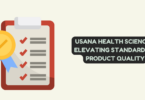
Injured at Work
Getting injured at work can be a daunting experience. Navigating the intricacies of workplace accident claims can add another layer of stress to an already challenging situation. In this comprehensive guide, we aim to demystify the myths surrounding workplace accident claims, providing you with the clarity you need during such a trying time.
Understanding Workplace Accident Claims:
Myth 1: The Blame Game
One common misconception is that workplace accident claims are always about placing blame. In reality, these claims are designed to ensure that injured workers receive fair compensation, regardless of who is at fault. It’s not about pointing fingers; it’s about taking responsibility for the well-being of employees.
Myth 2: Fear of Retaliation
Some workers hesitate to file claims due to the fear of retaliation from their employers. It’s crucial to understand that laws are in place to protect employees who assert their rights. Reporting an accident or filing a claim shouldn’t jeopardize your position within the company.
The Importance of Timely Reporting:
Myth 3: “I Have Plenty of Time, Right?”
Delaying the reporting of a workplace injury is a common misconception. The truth is, timely reporting is crucial for a smooth claims process. Waiting too long can complicate matters and may even jeopardize your eligibility for compensation. Don’t let the ticking clock become a barrier to your rights.
Medical Attention and Documentation:
Myth 4: “I Don’t Need a Doctor, I’m Fine.”
Seeking immediate medical attention is paramount after a workplace injury. Some believe that minor injuries don’t require medical assistance, but this mindset can undermine the severity of the situation. Documenting injuries with professional medical reports strengthens your claim and ensures you receive the compensation you deserve.
Compensation and Legal Assistance:
Myth 5: “Compensation is a Lottery.”
Many people mistakenly view receiving compensation for workplace injuries as a matter of luck, but this isn’t the case. It’s important to recognize that several key factors influence the compensation amount. These include medical bills, lost income, and the emotional impact of the injury. Being informed about these elements can give you an upper hand in negotiations. Moreover, consulting with a legal expert can help you confidently traverse the often intricate legal terrain associated with such claims.
Myth 6: “I Can’t Afford a Lawyer.”
Many workers shy away from hiring legal representation due to financial concerns. However, most workplace injury attorneys operate on a contingency fee basis. This means that they only get paid if you win your case. Affordability should never be a barrier to seeking professional legal advice.
Return to Work and Rehabilitation:
Myth 7: “I Have to Accept Whatever Job They Give Me.”
Returning to work after an injury doesn’t mean accepting any job your employer offers. You have the right to suitable accommodation and rehabilitation. Understanding your rights in this regard is crucial for a smooth transition back into the workforce.
Navigating the Claims Process:
Myth 8: “It’s Too Complicated.”
While the claims process may seem intricate, it’s designed to be accessible. Seeking guidance from professionals, both within your company and legal experts, can simplify the process. Don’t let the perceived complexity deter you from pursuing the compensation you rightfully deserve.
Myth 9: “If I File a Claim, I’ll Damage My Employer’s Reputation.”
Filing a workplace accident claim is not an attack on your employer’s reputation. It’s an assertion of your rights and a call for accountability. Companies are legally obligated to maintain a safe working environment, and filing a claim contributes to fostering a culture of workplace safety. In the long run, transparent reporting benefits both employees and employers by preventing future accidents.
Myth 10: “Once I Receive Compensation, My Case is Closed.”
Receiving compensation is a significant milestone, but it doesn’t necessarily mark the end of your involvement. Some injuries may have long-term consequences that manifest after the initial settlement. It’s essential to stay vigilant about your health and, if necessary, revisit your case with legal professionals to ensure ongoing support for any unforeseen complications.
Unveiling Further Realities of Workplace Accident Claims:
Myth 11: “I Can’t File a Claim if I Contributed to the Accident.”
Some workers believe that if they played a role, even a minor one, in their workplace accident, they cannot file a claim. The reality is that in many jurisdictions, contributory negligence does not necessarily bar you from seeking compensation.
Myth 12: “I Have to Accept the First Settlement Offer.”
A prevalent misconception is that the first settlement offer is non-negotiable, and accepting it is mandatory. In truth, the initial offer is often a starting point for negotiations. Insurance companies may offer a lower amount initially, hoping to settle quickly. Seeking legal advice allows you to assess the adequacy of the offer and negotiate for a fair settlement that genuinely covers your present and future needs.
Conclusion:
In conclusion, demystifying the myths surrounding workplace accident claims is essential for ensuring that injured workers receive the compensation and support they need. By understanding the realities of the claims process, seeking timely medical attention, and obtaining legal assistance when necessary, you can navigate this challenging terrain with confidence. Remember, it’s not about blame; it’s about securing a fair and just resolution for those affected by workplace injuries.






